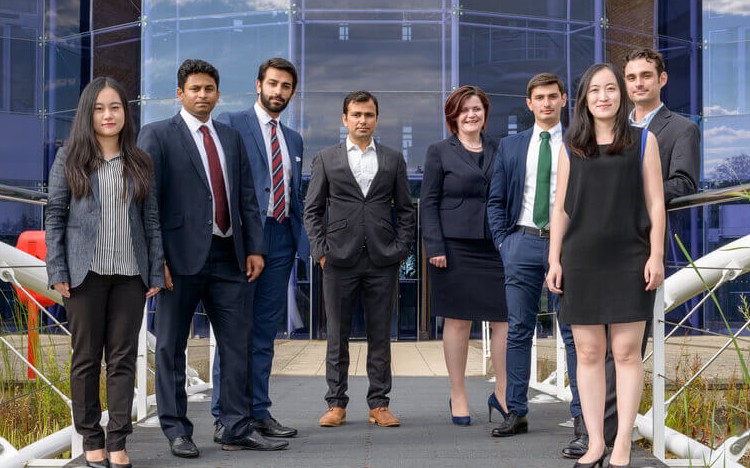In the UK alone, defense spending is set to be approximately £37.6 billion ($49.17 billion), investing in research and development, humanitarian efforts, and military activities to name a few.
From program administrators, to intelligence analysts, and product quality controllers, the defense industry is looking for people with management expertise to occupy the top roles.
At Cranfield School of Management, MBA graduates are snapping up these very jobs in the defense industry.
The school even offers an MBA Defence, a program developed in response to the growing interest in the sector and the only one of its kind in Europe.
As a postgraduate academic provider to the UK’s Ministry of Defence for over 30 years, Cranfield has long-held close associations with the industry, providing specialist knowledge and general management insight that serves its alumni well in the sector.
One example of a student with a successful career in defense is Adrian Holt. Before going to study an MBA at Cranfield School of Management, he had been an engineer in the Royal Air Force (RAF).
“At a certain point, engineering becomes synonymous with business,” he explains. “You need to understand the business, you can’t keep blindly going on without knowing more.”
For Adrian, his background in the RAF and hopes to move into higher position within the industry meant Cranfield was an obvious choice.
“[Cranfield] was the easiest for people in the military to get a hold of because of our long history working together—that relationship is still very strong,” he explains.
Cranfield is based at the former RAF station in Cranfield, Bedfordshire. It was formerly the College of Aeronautics and used for the development of aircraft research and design.
“It still feels a little like an RAF base; the infrastructure has been factored in,” says Adrian.
Having robust relationships with major players within various industries, including the UK defense industry, has helped Cranfield School of Management achieve a 95% employment rate within three months of graduation on their MBA and MSc programs. Cranfield alumni number over 28,000 in 130 countries and many of them have entered the defense and military industries.
“The services that they offer towards the end of the course, where they help you to prepare for job interviews and improve your CV, are really useful,” Adrian notes.
Indeed, the vast majority of business school alumni in general feel their graduate management education advanced their careers at a faster rate compared with their peers who did not purse business education.
Like many business sectors, digital transformation and tech are impacting the defense industry massively, according to Adrian. Whether it’s artificial intelligence, drones or electronic innovation changing how military communication are handled, those who want top jobs in defense need an MBA that equips them with future-proof insight of tech disruptions.
Adrian now works for the UK Ministry of Defence as an innovation scout, where he hopes to capitalize on the fourth industrial revolution and the new technology opportunities that it brings, helping an enterprise worth £4.4 billion ($5.75 billion) in his new position.
He says that his MBA has put him at an advantage. “Because of the MBA insights that I’ve had, I have been able to play negotiations far better than I would have been able to do otherwise,” he says.







